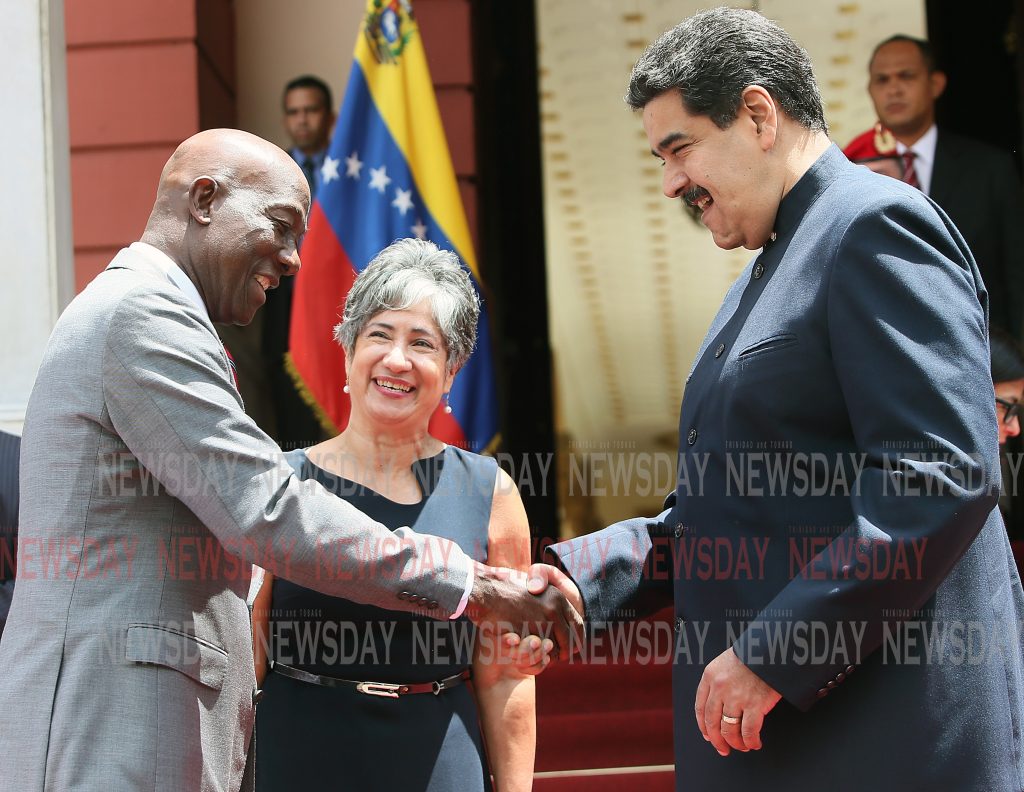NGC pres: Dragon gas expected in 'early 2020s'

The government has given a 2020 target for first gas from the Dragon gas field in Venezuela, but with negotiations for the gas sales agreement still in the technical stage, National Gas Company president Mark Loquan says a better timeline would be “early 2020s.”
“We have always been saying early 2020s. We have never been so specific. I know people have said 2020 but we as NGC have always said early 2020s because it is dependent on several things falling into place,” Loquan told Newsday at the Hyatt Regency Port of Spain.
The NGC, along with Shell and Venezuela’s state oil company PDVSA are the main players involved in the commercial aspect of transporting, processing, marketing and ultimately, monetising the gas from Dragon.
Last August, a TT delegation led by the Prime Minister signed two agreements with a Venezuelan delegation led by that country’s President Nicolas Maduro—a government to government agreement that would form the foundation for further negotiations, and a term sheet, a non-binding agreement outlining basic terms and conditions.
“The next thing is to convert that into a gas supply agreement but to do that you have to get into some technicalities of the arrangements, financing, et cetera, and that is still being worked through at technical team levels,” Loquan said.
Among the “nitty gritty” he said were the exact upstream configuration, the wells and conditions and all the issues around that “because you need to ensure there’s capability to flow gas.” All those discussions are very much still with PDVSA, he said, including data.
“Right now we are in the technical committee levels and that involves all three parties. It does require information from everybody to discuss this. It’s been difficult no doubt about it but the will and the motivation to try and work through the issues are certainly there,” he said.
Loquan said the deal is being done in a context where the infrastructure already exists, including the Hibiscus platform off the north coast of Trinidad, which is jointly owned by Shell and the TT government, as well as LNG pipelines, and the wells in Dragon have already been drilled and capped. The deal is being done in the context where there’s existing infrastructure in (offshore platform). “So you really are talking about some pipeline infrastructure over relatively short distances to make this whole thing work,” he said.
The plan, as previously announced, is that TT and Shell will construct a pipeline about 18 kilometres long connecting the wells in Dragon to Hibiscus. From there, the existing pipelines will transport the gas to the NGC in Point Lisas, to be distributed to its customers.
Loquan acknowledged there were political “issues” in Venezuela but was confident the government to government arrangement, as well as a heads of (companies) agreement between Shell, NGC and PDVSA, and the various technical committees.
“There’s a strong driving force on either side in terms of cash flow for Venezuela versus gas for TT in a time of curtailment. There are agreements in place to try to make that happen. I’m not saying there’s no risk. I think that would be wrong to say. We have to take cognisance of that issue but will say from a technical point of view, which is where I sit, that’s where we continue to work. From a political point of view, I will leave that for the politicians,” Loquan said.
The first tranche of Dragon’s production will yield about 150 million standard cubic feet of gas per day (mmscfd), or 26,505 barrel of oil equivalent per day (boed). For comparison, Petrotrin produces 43,000 barrels of oil per day and 130 mmscfd; bpTT’s Juniper well, which came on stream in the latter half of 2017, produces about 590 mmscfd.
The Dragon field is part of the Mariscal Sucre natural gas complex off the Caribbean coast of Venezuela, north west of Trinidad. Dragon is just one of the fields in a total acreage reserve of 14.7 trillion cubic feet of gas (tcf). Dragon alone contains 2.4 tcf. This deal marks the first time Trinidad will process Venezuelan gas.

Comments
"NGC pres: Dragon gas expected in ‘early 2020s’"